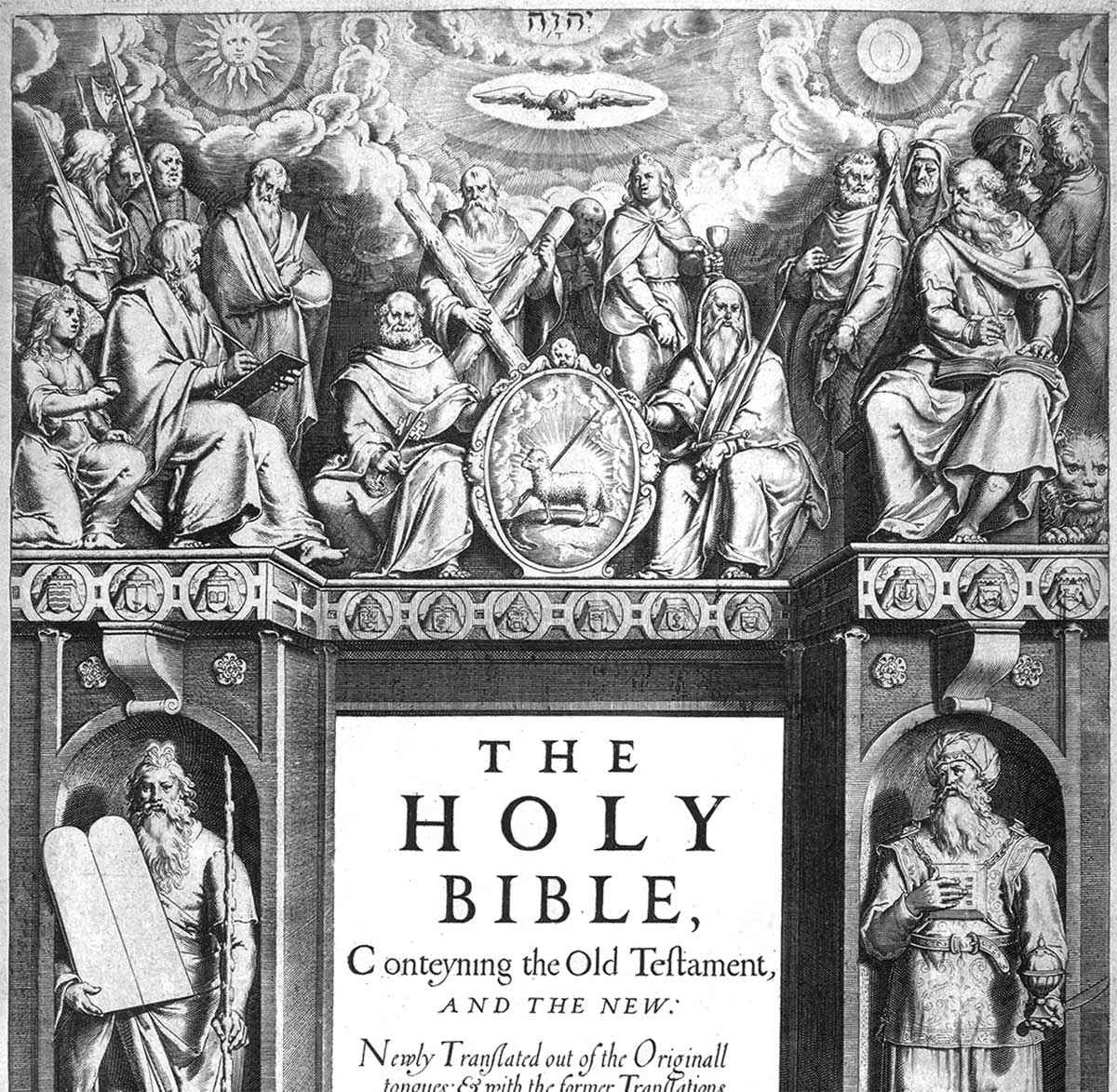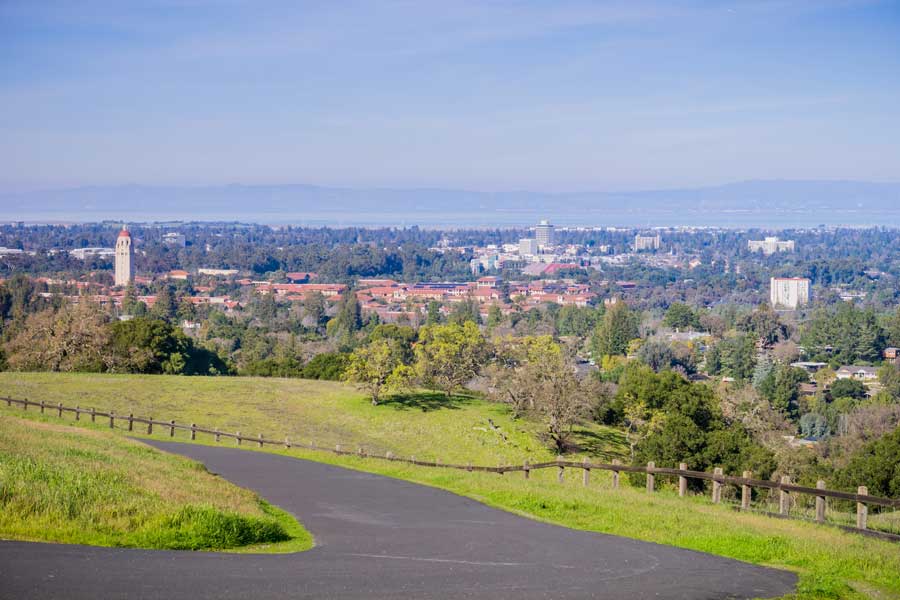Feature
Disinheriting the Wind
A Closer Look at the Scopes Trial
The widely misreported and misunderstood decision of the Kansas Board of Education not to require the teaching of the theory of evolution has, predictably, revived memories of the banning of such teaching in public schools by the state of Tennessee, leading to the infamous Scopes “monkey” trial of 1925. Whether or not the creation stories recorded in the Book of Genesis are best understood as myths, the account of the Scopes trial promoted by liberal social commentators and moviemakers is mostly mythical. The core of the myth is that Clarence Darrow, representing enlightenment, humanity, and intellectual freedom, made a monkey out of William Jennings Bryan and the other “boobs and bigots,” as H. L. Mencken dubbed them, who sought to keep the children of Tennessee yoked to ignorance and superstition. The facts, as the self-designated enlightened are fond of saying in other contexts, are “more complicated.”
Textbook Examples
In 1857, two years before Charles Darwin published The Origin of Species, Professor Asa Gray of Harvard, one of America’s foremost botanists, published a high-school textbook entitled First Lessons in Botany. He said, in that work, that “the Creator established a definite number of species at the beginning, which have continued by propagation, each after its kind.” In that same year, however, Charles Darwin outlined his theory of evolution to Gray, soon making a convert of him. A few years later, Gray arranged for The Origin of Species to be published in America and became one of the most influential defenders of Darwin’s ideas. In 1887, when a new version of Gray’s book was published under the title Elements of Botany, the role of the Creator was altered. Affirming “the tendency to variation which pervades all things,” the text remarked that the “beautiful diversity of forms” was sufficient “to convince the thoughtful botanist that all are parts of one system, works of one hand, realizations in nature of the conception of one mind.” As Edward J. Larson has observed in his 1997 book Summer for the Gods: The Scopes Trial and America’s Continuing Debate over Religion and Science, “God still lies behind nature, but the secondary cause of evolution replaced his creative hand as the immediate instrument of speciation.” (In what follows, I rely heavily on the account of the Scopes trial provided in Larson’s splendid book.)
Gray’s colleague at Harvard, Louis Agassiz, the leading American zoologist of his time, was unpersuaded by Darwin’s arguments and never accepted his conclusions. While Agassiz also rejected biblical literalism, his textbook, Principles of Zoology, never revised its claim that “The records of the Bible, as well as human tradition, teach us that man and the animals associated with him were created by the word of God, and this truth is confirmed by the revelations of science, which unequivocally indicate the direct interventions of creative power.”
By the 1880s, however, views like those held by Agassiz had gone the way of the dinosaurs, and textbooks like Principles of Zoology constituted nothing more than a kind of intellectual “fossil record” of the pre-Darwinian era. The generation of scientists trained after the publication of Darwin’s ideas were committed evolutionists, and the textbooks they wrote for use in high schools and colleges fully reflected their commitment. While many of these scientists were Christians, their books tended to omit references to God or the Creator as the force behind evolution. Their accounts were fully “naturalistic” precisely in this sense.
These scientists did not shy away from teaching that man, too, was the product of evolution, having descended as a species from an ancestor common to all vertebrate animals by a process of natural selection, or “survival of the fittest.” In a botany text published in 1903, Eliza F. Andrews taught that “the geological record shows that the simplest forms of life were the first to appear and from these all the higher forms were gradually evolved.” The most influential biology text in the period leading up to the anti-evolutionist political agitation that reached a climax in the Scopes trial, George W. Hunter’s A Civic Biology, published in 1918, cites the fossil record, spanning “millions of years,” as evidence of the evolution of complex forms of life from simple forms, with man presented as the most complex form, and the Caucasian race as “finally, the highest type of all.”
Darwinism & Progressive Fundamentalists
Now, while Darwin was getting into, and soon dominating, the biological textbooks, some of his admirers were applying his theory to economic and other sociological issues. So-called social Darwinists defended more or less unregulated free-market (“laissez-faire”) economics as the way to attain maximum productivity and efficiency. They invoked the notion of the survival of the fittest in opposing regulation of the terms and conditions of employment and other proposed social welfare policies. Industrialization was radically altering the social and economic conditions that had prevailed in America and was giving strong impetus to populist and progressive movements to bring government to bear to ameliorate the economic and social dislocations attendant upon rapid industrialization, and to protect the mass of unpropertied working people against exploitation.
These populist and progressive movements were strongly imbued with evangelical Christian religion. America’s most notable progressive, a Nebraska politician named William Jennings Bryan, personified what one historian described as the “merger of Evangelicalism and progressivism.” Born in the year the United States descended into Civil War, Bryan was deeply involved in a host of progressive causes before he became the leading national political figure in the conflict over teaching evolution. He fought for the national income tax, for example, as well as for women’s suffrage and prohibition. According to William Allen White, Bryan “stood for as much of the idea of socialism as the American mind will confess to.” At the same time, he shared the religious commitment and enthusiasm of his fellow progressive and anti-evolutionist, William Bell Riley, founder of the World’s Christian Fundamentals Association (WCFA). Riley described Bryan as his “great co-laborer, the mightiest lay-leader associated with the fight against evolution.”
In many respects, this fight was a classic progressive-era battle, pitting the interests, values, and beliefs of an elite against the interests, values, and beliefs, often religiously inspired or, at least, supported, of a populist movement. As Larson describes the pattern of progressive reform movements, they “first encourage others to bring their behavior voluntarily into line with some desired standard and then coerce laggards into conformity by force of law.” According to historians of progressive reform Arthur Link and Richard McCormick, “a familiar scenario during the period was one in which progressives called upon public authorities to assume responsibility for interventions which voluntary organizations had begun.” Drawing on the work of Link and McCormick, Larson concludes that “the anti-evolution crusade fits snugly into both the historical setting and the interventionist pattern outlined [by these scholars] for all progressive reform movements.”
Robert P. George is McCormick Professor of Jurisprudence and Director of the James Madison Program in American Ideals and Institutions at Princeton University (web.princeton.edu/sites/jmadison). His books include In Defense of Natural Law (Oxford University Press) and Conscience and Its Enemies (ISI Books). He has served as chairman of the U.S. Commission on International Religious Freedom. He is a senior editor of Touchstone.
bulk subscriptions
Order Touchstone subscriptions in bulk and save $10 per sub! Each subscription includes 6 issues of Touchstone plus full online access to touchstonemag.com—including archives, videos, and pdf downloads of recent issues for only $29.95 each! Great for churches or study groups.
Transactions will be processed on a secure server.
more from the online archives
calling all readers
Please Donate
"There are magazines worth reading but few worth saving . . . Touchstone is just such a magazine."
—Alice von Hildebrand
"Here we do not concede one square millimeter of territory to falsehood, folly, contemporary sentimentality, or fashion. We speak the truth, and let God be our judge. . . . Touchstone is the one committedly Christian conservative journal."
—Anthony Esolen, Touchstone senior editor











